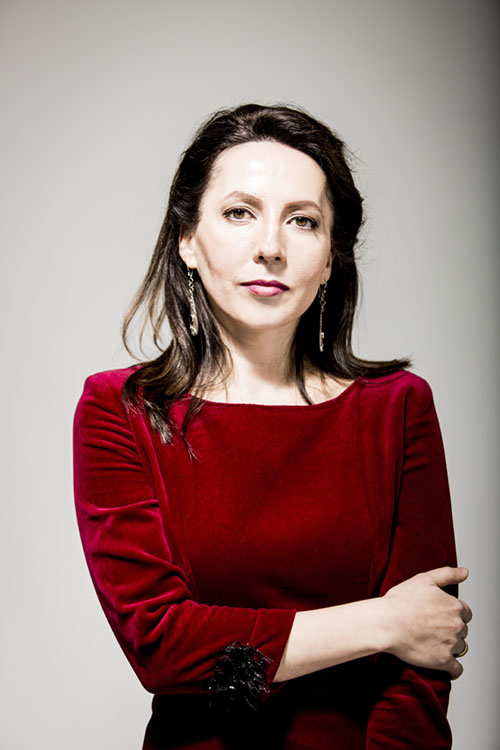Biography
Metamorphoses is a new ensemble of world class musicians who have established themselves individually as soloists and chamber musicians in the world’s most prestigious concert halls.
Their debut CD, Once upon a Time… is a cross-pollination of a wide range of sounds, colours and music styles – just as the group itself is an exchange between musicians from three different countries and cultures. The CD repertoire includes the work of composers who fought against great adversity, such as Leo Smit, a Dutch Jew killed by the Nazis, and Rebecca Clarke, who struggled for the recognition she deserved in the male dominated world of early 20th century composition. In addition, the recording features under-performed works such as Mozart’s beautiful Kegelstatt Trio and the devilishly difficult Trio by Jean Francaix.

Jean Johnson
 Jean Johnson is an international collaborator in chamber music programs and as such has played in some of world's finest venues, notably the Concertgebouw, Carnegie Hall, Wigmore Hall, and the Palais des Beaux-Arts. Jean plays in duo with her husband, pianist Steven Osborne, performing all over the UK, Europe, and America.
Jean Johnson is an international collaborator in chamber music programs and as such has played in some of world's finest venues, notably the Concertgebouw, Carnegie Hall, Wigmore Hall, and the Palais des Beaux-Arts. Jean plays in duo with her husband, pianist Steven Osborne, performing all over the UK, Europe, and America.
Notable chamber music festivals include Mostly Mozart Festival in New York City, Seattle Chamber Music Society Summer Festival,"Spannungen" Heimbach Germany, ICMS Southbank London, Festival Peregrinos Musicales, St, Magnus Music Festival, Spitalfields Music Festival London, Bath Music Festival, Lammermuir Festival, Hindsgavl Festival Denmark, Schwetzinger SWR Festspiele. Her recording of Brahms and Rozsa Sonatas with Steven Osborne earned high praise from many worldwide publications including the New York Times.
Mikhail Zemtzov
 Mikhail Zemtsov is an internationally acclaimed and versatile musician. Zemtsov’s solo appearances include performances with the Moscow Conservatory Chamber Orchestra, National Symphony Orchestras of Mexico, Estonia and Lithuania; Luxembourg Philharmonic Orchestra, Wiener Volksoper, Hamburger Symphoniker, Stavanger Symphony Orchestra, The Hague Philharmonic with the conductors like Neeme Jarvi, Jaap van Zweden, Leif Segerstam, Dmitri Kitajenko.
Mikhail is member of the Utrecht String Quartet and the Duo Macondo (with the guitarist Enno Voorhorst). Mikhail also founded an unique ensemble – Zemtsov Viola Quartet – together with his wife Julia, daughter Dana and nephew Daniil, all of them prominent viola players who studied with great viola virtuoso Michael Kugel.
Mikhail has participated in numerous International Festivals in Europe, Far East and the Americas. He has recorded numerous CDs for Sony Masterworks, Tower Records, Deutsche Welle, Ottavo, D&G, as well as recordings for TV and radio. His Solo CD “The Last Rose of Summer” has been placed as number 2 among Top 50 of the TROS – Dutch Broadcast/TV Channel and it has got 9 points (excellent) in the main Dutch recording magazine “LUISTER”.
His 2016 recording for Chandos label of Rapsody – Concerto by B. Martinu with Maestro Neeme Jarvi and National Symphony Orchestra of Estonia – has been highly acclaimed by international press, including Gramophone magazine.
Mikhail is a prize winner of the First International Viola Competition (Vienna,1998) and of the Elisa Meyer String Competition (Hamburg, 1998).
Mikhail Zemtsov is an internationally acclaimed and versatile musician. Zemtsov’s solo appearances include performances with the Moscow Conservatory Chamber Orchestra, National Symphony Orchestras of Mexico, Estonia and Lithuania; Luxembourg Philharmonic Orchestra, Wiener Volksoper, Hamburger Symphoniker, Stavanger Symphony Orchestra, The Hague Philharmonic with the conductors like Neeme Jarvi, Jaap van Zweden, Leif Segerstam, Dmitri Kitajenko.
Mikhail is member of the Utrecht String Quartet and the Duo Macondo (with the guitarist Enno Voorhorst). Mikhail also founded an unique ensemble – Zemtsov Viola Quartet – together with his wife Julia, daughter Dana and nephew Daniil, all of them prominent viola players who studied with great viola virtuoso Michael Kugel.
Mikhail has participated in numerous International Festivals in Europe, Far East and the Americas. He has recorded numerous CDs for Sony Masterworks, Tower Records, Deutsche Welle, Ottavo, D&G, as well as recordings for TV and radio. His Solo CD “The Last Rose of Summer” has been placed as number 2 among Top 50 of the TROS – Dutch Broadcast/TV Channel and it has got 9 points (excellent) in the main Dutch recording magazine “LUISTER”.
His 2016 recording for Chandos label of Rapsody – Concerto by B. Martinu with Maestro Neeme Jarvi and National Symphony Orchestra of Estonia – has been highly acclaimed by international press, including Gramophone magazine.
Mikhail is a prize winner of the First International Viola Competition (Vienna,1998) and of the Elisa Meyer String Competition (Hamburg, 1998).
Ilona Timchenko
 Ilona Timchenko won first prize in the Third Abstract Securities Landor Competition in 2007, fending off strong international competition and winning a contract with Landor Records- her first CD on their label came out in 2009 and was selected for one of the inaugural 'Outstanding' accolades in International Record Review in January. She brought a packed audience at England's Buxton Festival to their feet in July 2008 at her debut recital there and in April 2010 she made her debut at Unione Musicale, one of the most prestigious festivals in Europe.
Ilona Timchenko won first prize in the Third Abstract Securities Landor Competition in 2007, fending off strong international competition and winning a contract with Landor Records- her first CD on their label came out in 2009 and was selected for one of the inaugural 'Outstanding' accolades in International Record Review in January. She brought a packed audience at England's Buxton Festival to their feet in July 2008 at her debut recital there and in April 2010 she made her debut at Unione Musicale, one of the most prestigious festivals in Europe.
In addition to her solo activities Timchenko is a keen chamber musician and makes regular appearances at festivals in the Netherlands, Spain, France and Russia alongside artists such as Rivka Golani, Mark Lubotsky, Philippe Graffin, baritone Wolfgang Holzmair and Elias Quartet.